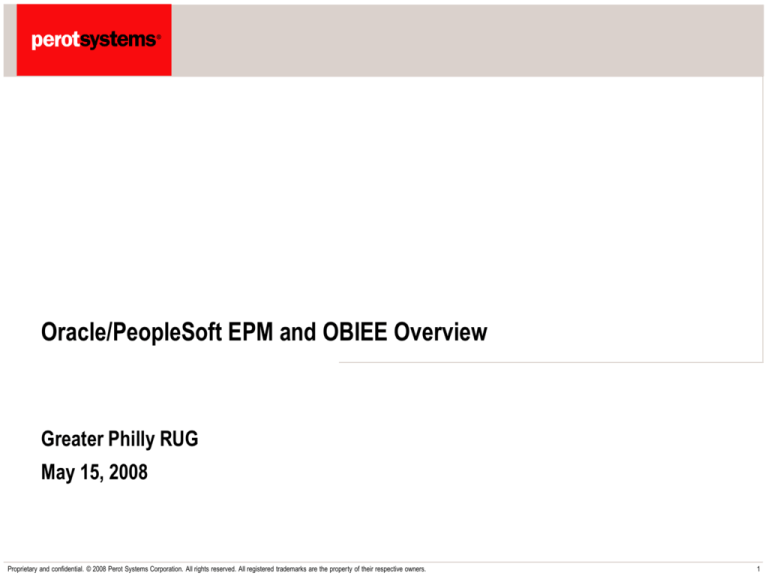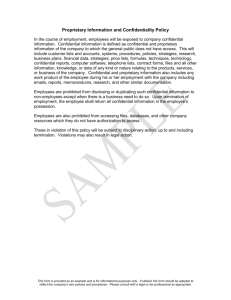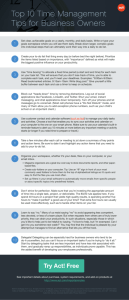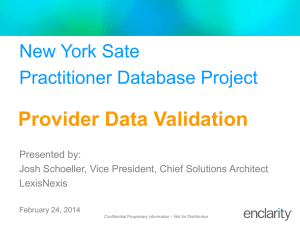
Oracle/PeopleSoft EPM and OBIEE Overview
Greater Philly RUG
May 15, 2008
Proprietary and confidential. © 2008 Perot Systems Corporation. All rights reserved. All registered trademarks are the property of their respective owners.
1
OBIEE and PeopleSoft EPM
Best Practice
Management
Trusted Advisor
Proprietary and confidential. © 2008 Perot Systems Corporation. All rights reserved. All registered trademarks are the property of their respective owners.
2
Agenda
Introductions and Definition of Data Warehouse
:00 – :10 Introductions and Definitions of Data Warehouse
Oracle’s offerings in the BI and Data Warehouse space
:10 – :15 Analytic Applications
:15 - :20 Business Intelligence Architecture – ETL, Administration, Metadata
Dashboards, Reporting and other OBIEE Plus Features
:20 - :25 11g Database Latest Features for Business Intelligence
BI as a component of Service Oriented Architecture
BI Appliances
PeopleSoft EPM
:25 - :35 How does EPM work and why do we want it?
Q&A
:35 – :40 Q&A
Proprietary and confidential. © 2008 Perot Systems Corporation. All rights reserved. All registered trademarks are the property of their respective owners.
3
Goals
Gain a better understanding of functionality of EPM and OBIEE
Answer questions regarding EPM functionality and uses
Proprietary and confidential. © 2008 Perot Systems Corporation. All rights reserved. All registered trademarks are the property of their respective owners.
4
Data Warehouse
• A data warehouse is the main repository of the organization's
historical data.
• Per Bill Inmon, “Data Warehouse is a subject-oriented, integrated,
time-variant and non-volatile collection of data in support of
management's decision making process”
Subject Oriented Data that gives information about a particular subject instead of about a
company's ongoing operations.
Integrated Data that is gathered into the data warehouse from a variety of sources and
merged into a coherent whole.
Time-variant All data in the data warehouse is identified with a particular time period.
Non-volatile Data is stable in a data warehouse. More data is added but data is never
removed. This enables management to gain a consistent picture of the business.
Proprietary and confidential. © 2008 Perot Systems Corporation. All rights reserved. All registered trademarks are the property of their respective owners.
5
Evolution of DW/BI
Legacy Mainframe outputs – Decades ago, BI actually began with the early mainframe reports,
called system outputs.
Custom reports – Developed by skilled programmers
Ad-hoc queries - Developed by skilled manager
Emergence of Data Warehouse – DW is centralized (enterprise) data store – Big boost to BI
Data marts - Specialized data store
Online Report and Query tools – Advent of easy to use graphical interface
OLAP and multi-dimensional analytic tools – Ability to slice and dice the data.
Business Analytic applications – Custom built applications to track pre-defined KPIs
BI today now typically encompasses BA as well as conventional BI.
Centralized Data Warehouse versus Distributed Data Warehouse
Proprietary and confidential. © 2008 Perot Systems Corporation. All rights reserved. All registered trademarks are the property of their respective owners.
6
Need for a Data Warehouse ?
• Why Data Warehouse ?
• There are many reasons, but the most important ones are
Reliable Reporting -The need for reliable, accurate and timely report
based on data from disparate data sources
Better Performance - The critical factor leading to the use of a data
warehouse is that a data analyst can perform complex queries and
analysis on the information without slowing down the operational
systems.
Intuitive - Keep the data model simple and intuitive for end users to build
reports
Proprietary and confidential. © 2008 Perot Systems Corporation. All rights reserved. All registered trademarks are the property of their respective owners.
7
Simple DW/BI Architecture
Proprietary and confidential. © 2008 Perot Systems Corporation. All rights reserved. All registered trademarks are the property of their respective owners.
8
DW/BI Basic components
Source
Systems
People
Soft
ERP
Peoples
oft
HR
Middlew
are
source/
Data
Staging
Area
Extract
Extract
Services:
Clean
Combine
Standardize
Conformdimensions
Prepare to
Load to
data marts
Data Marts
Load
Data Store:
Flat files
Relational
Tables
XML
Services:
OLAP &
User Query
Services
Data Store:
Dimensional
Atomic and/or
Summary
Business process
Oriented
DW Bus:
conforme
d facts
and
dimensio
ns
Extract
Load
End User
Data
Access
Ad Hoc Query
Tools
OLAP multidimensional
analysis tools
End User
Applications
Modeling tools:
Forecasting
Balance
scorecard
Data mining
Data Mart #2
Proprietary and confidential. © 2008 Perot Systems Corporation. All rights reserved. All registered trademarks are the property of their respective owners.
9
Business Intelligence
• Business intelligence (BI) is a business management term which refers to applications
and technologies which are used to gather, provide access to, and analyze data and
information about their company operations.
• Why Business Intelligence ?
BI systems can help companies develop a more consistent, data-based decision
making process for business decisions (avoid "guesswork" )
BI systems can enhance communication among departments, coordinate activities,
and enable companies to respond more quickly to changes (e.g., in financial
conditions, customer preferences, supply chain operations, etc.).
BI system that are well-designed and properly integrated into a company's
processes can improve company's overall performance.
Proprietary and confidential. © 2008 Perot Systems Corporation. All rights reserved. All registered trademarks are the property of their respective owners.
10
Business Intelligence/Business Analytics
• Business intelligence software and applications includes a range of tools.
• Some BI applications are used to
•
•
Analyze Performance, projects, or internal operations, such as Scorecarding; Business
activity monitoring; Business Performance Management and Performance Measurement;
User/End-user Query and Reporting; Enterprise Management systems; Executive
Information Systems (EIS); Supply Chain Management; and Finance and Budgeting tools.
• Other BI applications (aka Business Analytics) are used to store and analyze data, such as,
•
Data mining; Forecasting; Document Management; Knowledge Management; and
Dashboarding; Geographic Information Systems (GIS); Trend Analysis; Online Analytical
Processing (OLAP) and multidimensional analysis; (based on the "hypercube" or "cube");
Ask the Right Questions about Measures
Take the Right Approach to BI
1. At what level of summarization should I express this measure?
1. Think Big (don’t think about tools, think about how
information can improve the business)
2. Start Small (quick wins to engage the business)
2. At what unit of measure should I express this measure?
3. What complementary information should I include as context to enhance this measure’s
meaning?
4. What means of display would best express this measure?
5. How important is this measure to the relevant business process resource compared to
other measures?
6. At what point in the viewing sequence might the relevant business process resource
want to see this measure?
7. To what other measures might the relevant business process resource want to compare
this measure?
3. Foster Business-IT Partnership (learn what drives
the business)
4. Clean Up (data quality, integrity, governance)
5. Provide a Portfolio of Tools (role-appropriate
information delivery)
- source Cindi Howson, author of Successful Business
Intelligence
- source: Information Dashboard Design, Stephen Few, O’Reilly 2006
Proprietary and confidential. © 2008 Perot Systems Corporation. All rights reserved. All registered trademarks are the property of their respective owners.
11
Oracle’s offerings in the BI and Data Warehouse space
Proprietary and confidential. © 2008 Perot Systems Corporation. All rights reserved. All registered trademarks are the property of their respective owners.
12
Oracle’s Biggest Differentiator: Many Analytic
Applications from Many Sources
Aggressive Acquisitions
strategy led to a large
number of Analytics from
many sources
Proprietary and confidential. © 2008 Perot Systems Corporation. All rights reserved. All registered trademarks are the property of their respective owners.
13
Business Intelligence Architecture
Proprietary and confidential. © 2008 Perot Systems Corporation. All rights reserved. All registered trademarks are the property of their respective owners.
14
Business Intelligence Architecture cont.
ETL (Extract,
Tier
Transform, Load): Client
Load and Refresh
Warehouse, Manage
the ETL Repository,
and Store Metadata
related to ETL
Workflows/Maps
May be Informatica, Ascential, Server
Tier
Oracle Data Integrator
and/or Oracle Warehouse
Builder
Informatica Client
Tools
DAC Client
DAC
Repository
Informatica
Repository
Informatica Server
Components
Native DB
Libraries
Database
Tier
OLTP
Proprietary and confidential. © 2008 Perot Systems Corporation. All rights reserved. All registered trademarks are the property of their respective owners.
DAC (Data Admin
Console):
Administer,
Monitor, Control
Data Warehouse
Processes
DAC Server
JDBC
Data
Warehouse
15
Business
Intelligence
Architecture cont.
Oracle BI Applications Warehouse
Procurement
Operations
HR
Finance
Distribution
Marketing
Sales
Service
3
Database
2
ETL
Siebel
PeopleSoft
Oracle EBS
CTI,ACD,IVR Syndicated
SAP
Universal
1
Proprietary and confidential. © 2008 Perot Systems Corporation. All rights reserved. All registered trademarks are the property of their respective owners.
16
OBIEE Dashboards, Answers, Delivers
Guide users to a decision supported by the analytics
Dashboards
Scorecards
Personalized function-specific and role-based data
presentation.
OBIEE Answers: Ad-hoc data exploration with ability
to create, modify and author analyses, pivot
tables and dashboards
OBIEE Delivers: Dynamic problem/opportunity
detection and notification, using automated
analytic workflows and processes to tailor
delivery to mobile devices
BI Publisher with advanced distribution capabilities
creates XML and integrates with programs such
as Microsoft Office to create pixel perfect output.
Disconnected Analytics: Not connected to the Server
Proprietary and confidential. © 2008 Perot Systems Corporation. All rights reserved. All registered trademarks are the property of their respective owners.
17
OBI Suite EE Design Principles
Unified Enterprise view of information
Unified Semantic view of information – model the complex information sources as a simple,
understandable and logical business model
Real-time information access – Allow users to combine historical and real-time information
to get up-to-the minute view of the business
Proactive Intelligence facilities – Send alerts in response to business event
Pre-built Analytic applications
Hot-Pluggable – into any existing data sources, any pre-packaged applications, any security
infrastructure without having to replace existing investment
Business process integration – Integration between OBI and Workflow manager to help
integrate business insight to drive Business process optimization.
Proprietary and confidential. © 2008 Perot Systems Corporation. All rights reserved. All registered trademarks are the property of their respective owners.
18
OBIEE Contains:
Maps
Logical Table Diagram
Models
Physical, Business, and
Presentation semantic Layers
Proprietary and confidential. © 2008 Perot Systems Corporation. All rights reserved. All registered trademarks are the property of their respective owners.
Metrics
Dashboards with Alerts, Reports,
Metrics
19
Case Study: Ohio State University Medical Center
Ohio State University Medical Center deployed:
19 dashboards via Oracle Dashboards
70+ iBots (iBots are software-based agents driven by schedule or events that can access, filter,
and perform analytics on data based upon defined criteria. iBots provide proactive delivery of
real-time, personalized and actionable intelligence throughout the business network.) available for
subscription via Oracle Delivers with graphic delivery via Blackberries and text delivery via
pagers,
support of “what if” scenarios via Oracle BI for Microsoft Office
BI Publisher reports delivered via email
User activity monitoring and reporting
Advanced KPI alerting and notifications
Metadata dictionary via Oracle Answers
Integration with Oracle Single Sign On
Custom financial reporting from PeopleSoft
Oracle Answer integration with Oracle Portal via JSR-168
OBIEE Answers as primary ad hoc reporting tool.[1]
Proprietary and confidential. © 2008 Perot Systems Corporation. All rights reserved. All registered trademarks are the property of their respective owners.
20
Reporting and EPM Solutions
To simplify the development of
dashboards, Hyperion Dashboards
offer direct access to relational,
multidimensional data without having to
maintain the Semantic Layer
Proprietary and confidential. © 2008 Perot Systems Corporation. All rights reserved. All registered trademarks are the property of their respective owners.
21
Oracle Database and the Oracle 11g “BI Database
release”
The Analytic Workspace manager manages OLAP Cubes in the 11g
Database
Other:
Increased its capabilities in automated partitioning of tables
Parallel processing for all operations
Compression Flashback capabilities for continuous availability data
requirements of Business Intelligence applications.
Security: Virtual Private Database and Fine Grained Auditing.
Resource management enabling different updates to be given different
priority, and different queries to be given different priority.
Advanced indexing that can be function based or aggregate-field based.
Change capture and data integration is enhanced in Oracle 11g using
streams, CDC (Change Data Capture), replication, and messaging
gateway
Proprietary and confidential. © 2008 Perot Systems Corporation. All rights reserved. All registered trademarks are the property of their respective owners.
22
Business Intelligence as a Component of Service
Oriented Architecture (SOA)
Example:
A call to the data warehouse
that runs and returns
data from a report that
gives much more
analytic information
about the customer.
Built using Fusion
Architecture.
Would run a BPEL process
on Fusion Middleware.
Embedded Business
Intelligence
Proprietary and confidential. © 2008 Perot Systems Corporation. All rights reserved. All registered trademarks are the property of their respective owners.
23
BI Appliance – The Oracle Optimized Warehouse
Initiative
“Data warehouse in a box ”
Pre-install and pre-configure scalable systems that
use partitioning and RAC technology for
optimization
Easy to buy and maintain, provide high
performance, are fast to implement, and are
competitively priced.
Database, storage, and servers are validated and
tested to deliver optimal performance, and the
warehouse is supported as a single product, with
a single support contact.
Dell/EMC, IBM and Sun all offer solutions.
Proprietary and confidential. © 2008 Perot Systems Corporation. All rights reserved. All registered trademarks are the property of their respective owners.
24
PeopleSoft EPM:
Proprietary and confidential. © 2008 Perot Systems Corporation. All rights reserved. All registered trademarks are the property of their respective owners.
25
EPM Data Warehouse Contains:
Metrics
Maps
6000 + pre-built ETL maps
ETL tool - Ascential DataStageTM
Rationalized data models
Surrogate key support
Conforming Dimensions
Financials
HCM
ESA
GL & Profitability
Accounts Payable
Accounts
Receivable
• Commitment
Control*
• Compensation
• Learning &
•
•
•
•
Development
• Recruiting
• Workforce
Profile
Proprietary and confidential. © 2008 Perot Systems Corporation. All rights reserved. All registered trademarks are the property of their respective owners.
Analytic depth and breadth
Open BI Tool strategy
Content in BI partners and Oracle
BI Tools
Supply
Chain
• Fulfillment &
Billing
• Inventory
• Spend
26
EPM Applications Contain:
Maps
Models
Metrics
Internet Pages to analyze, act on
data, post data to other
applications
Engines for Transforming Data
Based on configured Models
Rationalized data models to support
Analytic Applications
Create Baseline Budget
Budget Ledger
Budget, Approve, Post
Consolidate Ledgers
Consolidation Ledger
Review, Post, Report
Ledger to ABM
Activity Cost Detail
Review, Report, Budget
Job to Workforce
Workforce Analytic Facts
Review, Report, Budget
Multiple Sources to KPI
KPI and Scorecard Facts
Act, Review, Strategize
Proprietary and confidential. © 2008 Perot Systems Corporation. All rights reserved. All registered trademarks are the property of their respective owners.
27
Hyperion SQR 9.3.1 and Beyond
Best Practice
Management
Trusted Advisor
Proprietary and confidential. © 2008 Perot Systems Corporation. All rights reserved. All registered trademarks are the property of their respective owners.
28








